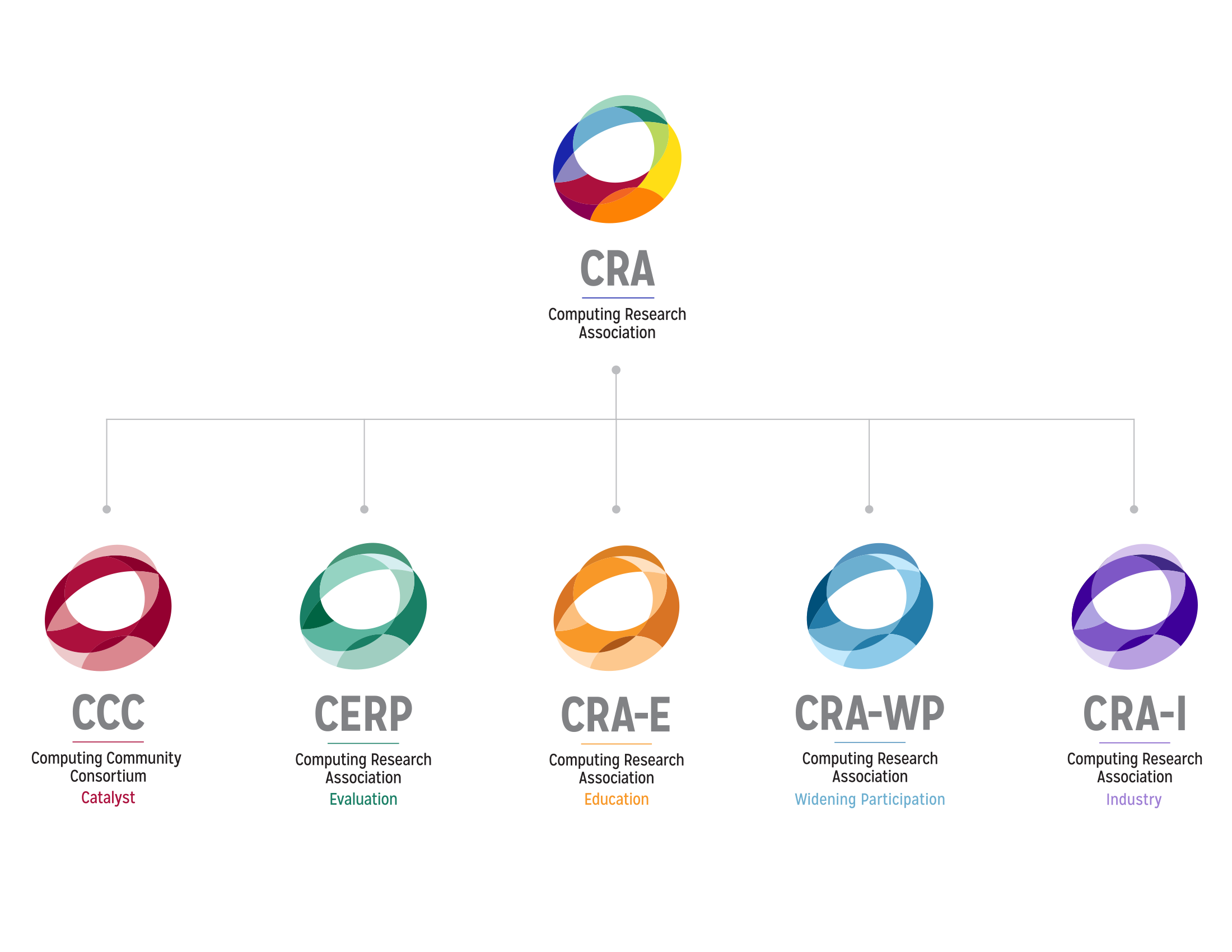About CRA
CRA counts among its members more than 250 North American organizations active in computing research: academic departments of computing; laboratories and centers in industry, government, and academia; and affiliated professional societies (AAAI, ACM, CS-CAN, IEEE Computer Society, SIAM, and USENIX). CRA works with these organizations to represent the computing research community and to effect change that benefits both computing research and society at large.
CRA was formed in 1972 as the Computer Science Board (CSB), which provided a forum for the chairs of Ph.D. granting computer science departments to discuss issues and share information. In 1986 CSB, in recognition of its increasing concern for R&D in the computing fields, including computer engineering and computational science, incorporated as the Computing Research Board (CRB). In 1990, CRB was given its present name, the Computing Research Association, and a permanently staffed office was opened in Washington, DC. CRA is incorporated in the District of Columbia and operates as a 501(c)3 organization under the Tax Code of the U.S. Internal Revenue Service.
Our Mission
The mission of the Computing Research Association is to catalyze computing research by joining with industry, government, and academia. CRA executes this mission by leading the computing research community; informing policymakers and the public; and championing a diverse, welcoming, equitable, and socially responsible computing research community.
An Invaluable Resource
CRA ensures that computing research has a vibrant future by investing in our community. With the help of industrial, academic and government leaders, we unite the computing community to advance future directions of the field. We enhance public and policymaker understanding of the importance of computing to make the case for federal investment in research. We have programs that mentor and cultivate individuals in each stage of the pipeline, so that more computing researchers can reach their full potential. All of our programs are evaluated regularly in order to ensure their efficacy. Most of initiatives at CRA are led and supported by our passionate volunteers, talented computing researchers who dedicate their valuable time to bring our programs to life. CRA is an invaluable resource to the computing community.


